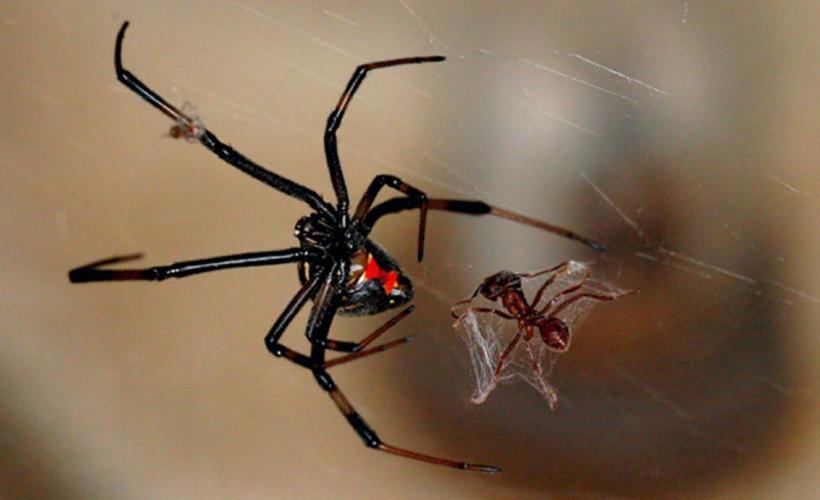As winter winds down, temperatures will begin to rise in SaddleBrooke and across Arizona. However, since warmth is generally part of our weather pattern year-round, did you know this ongoing warmth helps create the perfect conditions for spiders to thrive and become a pest in your home.
If you are wondering why this is, simple biology comes into play. Warmer weather increases breeding for flying insects, which are the meal of choice for spiders (mosquitoes, flies, etc.). As the flying insect population increases, so does the spider population.
Fortunately, spiders rarely bite humans unless their nests or webs are disturbed. Except for a few species, the venom in spider bites affects individuals in various degrees from mild to a severe allergic reaction when bitten. The Black Widow, which is about a half inch long, black, and is most easily identified by the red hourglass shaped mark on the underside of its abdomen, and the Brown Recluse Spider, which is usually brown in color and one-quarter to one-half inch in length, are two to be aware of. If you are bitten by one, seek medical attention immediately.
However, because spiders feed primarily on other insects, their presence in your home can be a sign of a larger pest infestation, and their building of webs indoors can prove to be a nuisance for most homeowners when left untreated.
Some things you can do indoors to help keep spiders from wreaking havoc include high areas where plastic plants, knick knacks, and decorative items are placed. I also suggest dusting often on curtains, skylights, ceiling fans, behind furniture, garage ceiling corners near entry and of course in areas that we do not often look. This ensures spiders have less places in which to hide. A homeowner can thoroughly vacuum any areas where spiders or spider webs are found using their wand attachment to ensure they get all the small cracks and crevices. In addition, keeping pet food tightly covered and not leaving food bowls out all day can be a big help in this ongoing battle.
From an outdoor perspective, taking your broom and sweeping down any webs you see around your house paying special attention to the eaves of the house can help turn the tide. Seal all exterior cracks as best as possible paying special attention to doorways, window casings, basement walls and door frames will help prevent entry points from increasing. Trim back trees, bushes or other vegetation that can be found touching the walls of the home to keep spiders from using them to crawl across outdoor plants and furniture, pool equipment, BBQs storage areas, ceiling fans, windows, and bird blocks. Remove piles of wood or rotting leaves and other vegetation from around the foundation of the home. Finally, keep trash bins away from the house, as spiders will often lurk near them in hopes of preying on other insects.
While I know the above indoor and outdoor tips can certainly help keep your house from becoming spider central, should the problem become overwhelming, contact your local pest control professional. A professional can assist you with interior web wiping to remove spider webs from ceiling corners and beams, windowsills, and other surfaces to destroy the spiders’ source of food—its web. They can also assist you with exterior web wiping which will remove spider webs from eaves, under patio covers, around doors and overhangs, and other areas to destroy the web. In addition to removing unsightly webs, the wiping also leaves behind a repellent to discourage further insect activity.





